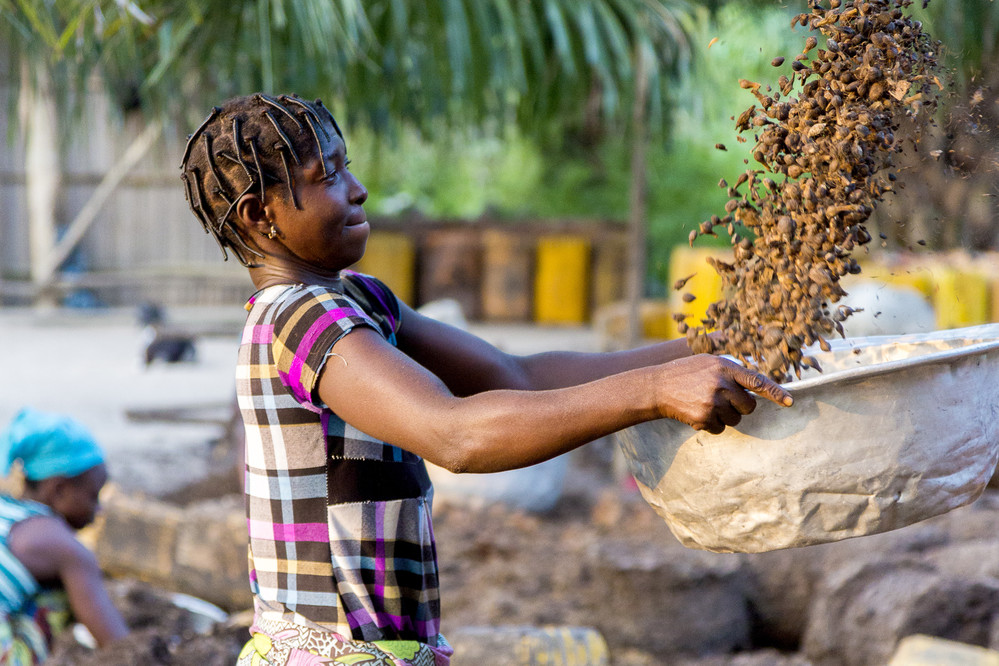For more than 10 years, I managed two USAID-led, multidonor initiatives, also known as “Grand Challenges for Development” to help farmers as well as small and medium enterprises (SMEs) involved in agriculture: Securing Water for Food (SWFF) and Water and Energy for Food (WE4F). Both programs focused on producing more food with less water/energy and making more water and energy available for the food value chain. I’m happy to report that both programs met and, in most cases, exceeded their expected outcomes envisioned when the programs were created. WE4F, now led by Sonia Ihenachor, continues to build on its record of success.
In my new role at DFC, I’m amazed at how many SWFF and WE4F companies are growing and maturing to the level that they can receive DFC financing. It is my belief that providing financing to SMEs working at the nexus of food, water and energy is crucial to feeding a growing global population while also becoming more resilient to climate change.
Collectively, over 150 SWFF and WE4F SMEs have helped nearly 10 million farmers and other customers save or reallocate more than 25 billion liters of water to the food value chain, contributed to the production of more than 10 million tons of food and helped conserve nearly 800 million kilowatt hours of energy. Both programs have helped farmers become more resilient to drought and other climate stressors. WE4F has also reduced greenhouse gas emissions in the food value chain by nearly 600,000 tons. More than two and a half million hectares of rangeland and cropland are under improved practices (e.g., crop rotation, natural fertilizer-integrated pest management and climate- or drought-resilient crops) due in part to SWFF and WE4F innovations. Impressively, SWFF and WE4F innovators have effectively utilized their funding to secure nearly $65 million in additional funding through more than 300 partnerships and achieved more than $50 million in sales.
Through the significant efforts of SWFF and WE4F innovators, five valuable lessons learned have informed more cost-effective, cost-efficient choices and helped dozens of companies reach sustainable scale:
- Financing Must be Unlocked: SMEs need additional climate financing through debt, equity, development impact bonds and end-user financing schemes to scale to the level needed to significantly reduce the impacts of climate change and to make food systems more climate resilient.
- Provide Targeted Support and Pay for Results: Milestone-based funding, paired with acceleration support services, delivers greater program and individual innovator impact than development dollars alone. The acceleration support services must increase an SME’s technical capacity and the milestones must be realistic but ambitious. SWFF and WE4F’s Technical Assistance Facilities have been instrumental in the growth of the programs’ SMEs.
- Scaling Should be Everyone’s Priority: Innovator success requires multistakeholder collaboration, as well as the flexibility to pivot and recalibrate based on lessons learned from measurement and monitoring data. These businesses won’t reach sustainable scale on their own, and need both governmental and nongovernmental support to reach and support millions of farmers that need climate solutions, including drought-resilient and pest-resistant crops, as well as techniques to improve soil salinity.
- Women are Critical to Success: With women comprising up to 70% of smallholder farmers in some countries, it is essential that companies think of women as key customers. In some cases, innovators have become more profitable because of the incorporation of design and marketing feedback from women to address the specific challenges women face. In many cases, women using SWFF and WE4F innovations have benefitted more than men because of the time savings realized in cooking, collecting water and performing other on-farm labor.
- Make Loans a Farmer’s Friend: For SWFF and WE4F innovators, the task of alleviating poverty is particularly challenging as they strive to establish financially sustainable enterprises. This challenge is also compounded by trying to meet the needs of their communities that are frequently overlooked or underserved by water, energy and agricultural technology providers. When farmers lack the ability to initially pay the full cost of the innovation, implementing reasonable loan systems with a down payment has enabled farmers to gain returns of up to 100 times their original investment.
From 2013-2019, USAID, Sweden through the Swedish International Development Cooperation Agency, the Government of South Africa and the Ministry of Foreign Affairs of the Kingdom of the Netherlands have invested $35 million and provided critical acceleration support to promote science and technology solutions that enable the production of more food with less water and/or make more water available for food production, processing and distribution. Since 2020, the German Federal Ministry for Economic Cooperation and Development (BMZ), the European Union (EU), the Ministry of Foreign Affairs of the Kingdom of the Netherlands, the Norwegian Agency for Development Cooperation (Norad), Sweden through the Swedish International Development Cooperation Agency and USAID have provided more than $50 million to its Regional Innovation Hubs, providing financial support, technical assistance and investment facilitation to water-food, energy-food and water-energy-food innovations. The supported innovations impact smallholder farmers, helping them unlock missing inputs, finance, technology and markets. By using these innovations, farmers and food companies can enhance their climate resilience and reduce CO2 emissions. Additional information and research findings can be found in the SWFF Final Report and the WE4F 2022 Annual Report.
This article was originally published by: AgriLinks

